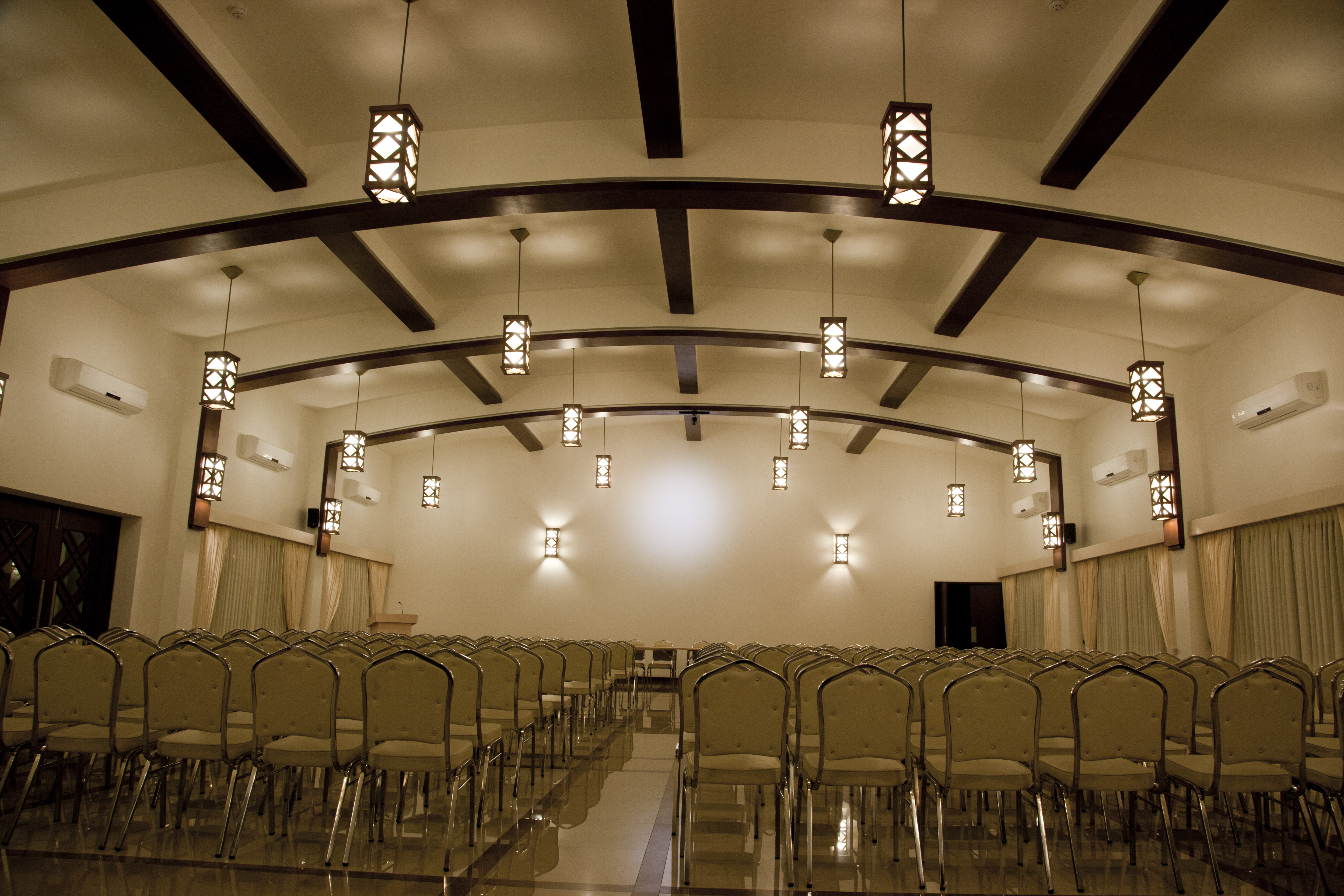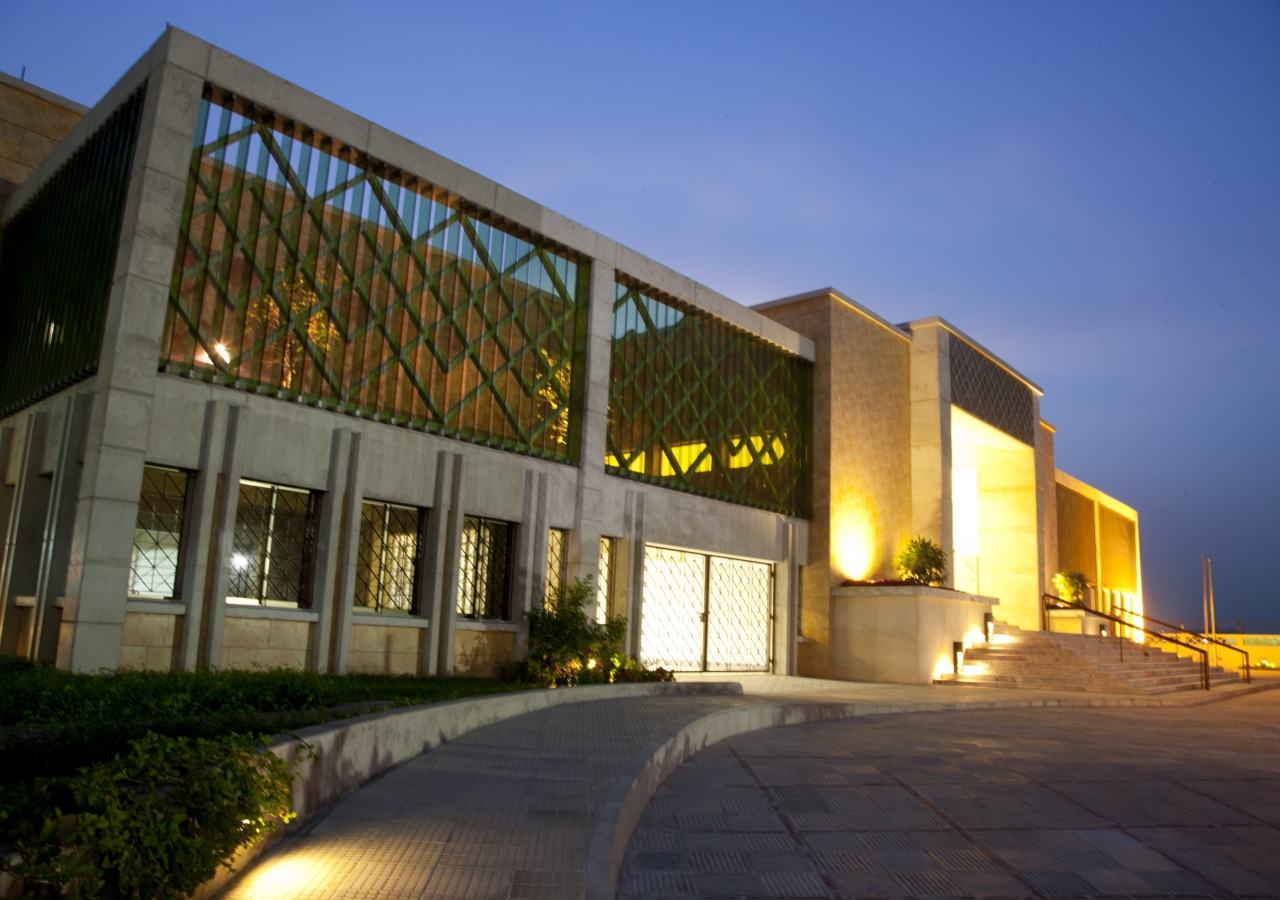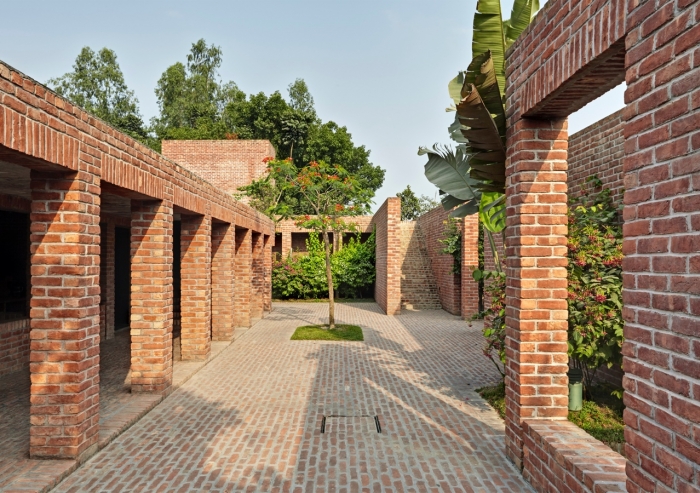For four years, the Ismaili community of Bangladesh looked forward to the 18th of August 2012 with eager anticipation. The date would mark the first time that the new Ismaili Jamatkhana and Centre in Dhaka would open its doors.
With a history spanning more than six decades in Bangladesh, the Ismaili community sees the new Jamatkhana as a symbol of renewed hope and confidence in the future of their country. It will be “a place of peace and tranquility, filled with a spirit of humility and prayer,” said Mawlana Hazar Imam at the building's foundation stone laying ceremony in May 2008, “a place where men and women in this pluralist country can help strengthen those common bonds which reflect our common challenges and which will shape our common destiny.”
 Functional areas of the building are arranged around the Centre Courtyard with the Social Hall on the right, the Administrative Corridor on the left, and the Prayer Hall in the front. Ayeleen Ajanee Saleh
Functional areas of the building are arranged around the Centre Courtyard with the Social Hall on the right, the Administrative Corridor on the left, and the Prayer Hall in the front. Ayeleen Ajanee SalehIn a city of nearly 13 million people, the Ismaili Jamatkhana and Centre – with its fountain, courtyard and gardens – provides the Dhaka Jamat with a welcome respite from the daily hustle and bustle of life. The tranquility of the Jamatkhana prayer hall offers a quiet space for reflection and remembrance.
The architect of the Centre, Rafiul Alam Pintoo, sees the building as a major milestone in his long career. “I considered this as an ‘exclusive' project, which had to meet the international standards set by Ismaili Centres around the world.”
As a student, Pintoo recalls that he came to know of Mawlana Hazar Imam as a patron of architecture, and would read Mimar with great interest (a journal associated with the Aga Khan Award for Architecture that was published between 1981–92). In his design of the Centre, he sought to incorporate hard and soft courtyards to highlight the concepts of light, air, water and greenery. The basic square – as a foundation for more complex geometric patterns – can be seen repeated throughout the Centre.
In addition to being a place of prayer, the Ismaili Jamatkhana and Centre can serve as a platform for meaningful dialogue between Ismailis and the wider community. One Jamati leader describes it as “an ambassadorial building, which is not only a Jamatkhana, but will also signify the Imamat's presence in the capital city of our country.”
The Centre also features administrative and meeting facilities that serve the needs of the Ismaili Council for Bangladesh. Classrooms and a new library provide space for children's religious education, and teachers will benefit from a seminar hall that can be used for pedagogical development and parent information sessions. “A major outcome of the upgraded facilities will be that the youth will have the resources now to better absorb and articulate the meaning of their faith and this will ultimately motivate and cultivate future leaders,” says one Jamati member.
One of the most dynamic spaces in the Centre is the Social Hall. Situated close to the main entrance of the Centre, it has facilities to host a wide range of programmes from seminars and workshops to special events. In addition to Jamati programmes, the Social Hall provides a venue for the Jamat to reach out and engage with the wider Bangladesh society.
 The Social Hall provides a place for hosting seminars, lectures, and cultural and educational programmes. Ayeleen Ajanee Saleh
The Social Hall provides a place for hosting seminars, lectures, and cultural and educational programmes. Ayeleen Ajanee SalehBut for many in the Jamat – particularly young children and their parents – one of the most popular features can be found behind the Ismaili Centre building, where a playground has been built. A walking trail passes through the playground and continues around the perimeter of the Centre. “After dinner, my friends and I go for a walk on the path around the Centre since it is safe and lit up,” comments an elder member of the Jamat.
Many elders in the Jamat remember the opening of the Karimabad and Chittagong jamatkhanas in 1960 and 1964. “The Chittagong Jamakhana with its marble floors served as a proud symbol of the Ismaili community,” recalls one senior member of the Jamat. The new Ismaili Centre is seen as a similar sign, and a beacon for those in other parts of the world to seek opportunities in Bangladesh's growing economy.
“Mawlana Hazar Imam's decision to build this Centre in Dhaka is an expression of the Imamat's continuing historic commitment to this country,” said Rai Habib Hirji, President of the Ismaili Council for Bangladesh. He added that he expects it to play a very significant role in reinforcing the warm relations that Ismailis have enjoyed with fellow Bangladeshis.











